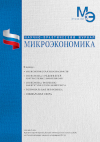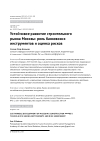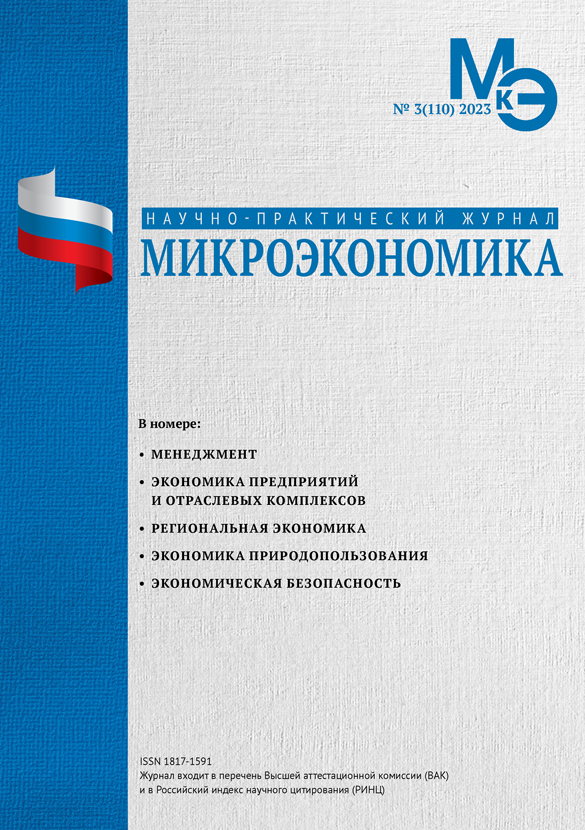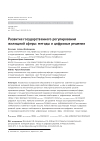Sustainable development of Moscow’s construction market: the role of banking instruments and risk assessment
DOI: 10.33917/mic-3.122.2025.100-109
The article examines the factors influencing the dynamics of housing construction in Moscow between 2019 and 2024, with a particular focus on the role of banking instruments in ensuring the stability of the construction industry. It explores the effects of the pandemic, changes in credit policies, and legislative innovations such as the reduction of warranty periods and the lowering of penalty sanctions. The findings suggest that economic instability and shifts in consumer preferences have a significant impact on the market structure, while financial instruments help mitigate the negative effects of crisis situations. The conclusion emphasizes the importance of an integrated approach aimed at further improving financial mechanisms and adapting legislation to support the stable development of the construction sector.
References:
1. Housing commissioning. Federal State Statistics Service (Rosstat). URL: https://rosstat.gov.ru/analitika/vvod_zhilya (In Russ.)
2. Monitoring of housing construction volumes. Ministry of Construction and Housing and Communal Services of the Russian Federation. Housing policy. URL: https://minstroyrf.gov.ru/trades/zhilishnaya-politika/8/ (In Russ.)
3. Housing construction in the Russian Federation in 2023 increased by 7.5%, to 110.4 million sq. m. – Rosstat. Interfax. January 26, 2024. URL: https://www.interfax-russia.ru/realty/news/zhilishchnoe-stroitelstvo-v-rf-v-2023-g-vyroslo-na-7-5-do-110-4-mln-kv-m-rosstat (In Russ.)
4. Moscow residential real estate market overview based on the results of May 2024. Moscow Analytical Center. URL: https://ac-mos.ru/download/estate/2024_07_01/ (In Russ.)
5. Financing of shared-equity construction. Bank of Russia. URL: https://www.cbr.ru/banking_sector/equity_const_financing/ (In Russ.)
6. Borisyako М.А., Valershteyn A.V. ESG-transformation of companies in the investment and construction industry. In: XXXVI International Plekhanov Readings. Collection of articles by the conference participants. In 4 volumes. Moscow, April 25–27, 2023. Moscow: Plekhanov Russian University of Economics, 2023. pp. 22–26. EDN: https://elibrary.ru/eskota (In Russ.)
7. Abbasov E.U. Elements of ESG transformation in the investment system in the construction industry. In: Sustainable development (ESG): finance, economics, industry. Proceedings of the IV National scientific and practical conference with international participation, St. Petersburg, October 19-20, 2023. St. Petersburg: Center for Scientific and Production Technologies «Asterion», 2023. pp. 186–190. EDN: https://elibrary.ru/filxzm (In Russ.)
8. Lomoro A., Mossa G., Pellegrino R., Ranieri L. Optimizing Risk Allocation in Public-Private Partnership Projects by Project Finance Contracts. The Case of Put-or-Pay Contract for Stranded Posidonia Disposal in the Municipality of Bari. Sustainability. 2020; 12(3):806. https://doi.org/10.3390/su12030806 (In Eng.)
9. The districts of Moscow where new buildings have fallen in price by 10-15% in a month are named. RBC Real Estate. November 5, 2024. URL: https://realty.rbc.ru/news/672562309a7947b8d6190932?from=copy (In Russ.)





